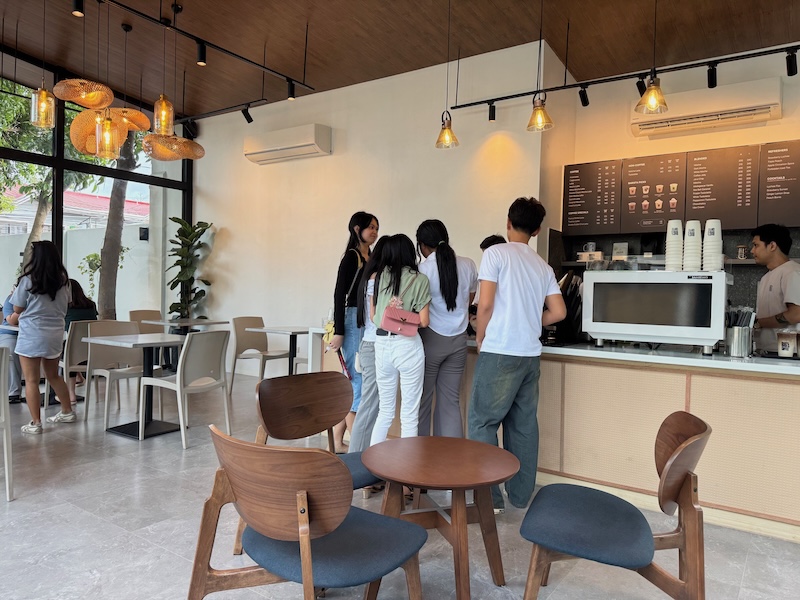In the Philippines, coffee has become more than just a beverage — it is part of an everyday lifestyle. From morning grab-and-go cups for professionals dashing to work, to students staying late in cozy cafés, coffee fuels both productivity and social connection. However, with the growing café landscape, the decision to open either a franchise or an independent shop remains a central question for entrepreneurs and coffee lovers alike.
With Big’s Coffee shaping local café culture and responding to the evolving expectations of customers, the contrast between a coffee franchise vs independent café has never been more relevant. This discussion is essential for young professionals seeking stable career-driven ventures, students curious about unique café spots, and coffee enthusiasts eager to explore specialty brews. The following insights will uncover key factors that influence profitability, identity, and long-term sustainability for either choice.

Understanding the Coffee Franchise Model
A coffee franchise provides aspiring café owners with an established brand, tested business model, and recognized identity. This route appeals to entrepreneurs who prefer minimizing risks associated with starting from scratch. Franchises typically offer standardized training, supplier networks, marketing support, and operations guidelines that streamline both setup and long-term management. In the Philippines, franchise cafés have gained rapid traction due to the population’s familiarity with branded coffee and the convenience they deliver.
The success of franchising lies in consistency. Customers walking into one branch expect the same flavors, ambiance, and service they experienced in another. This predictability reassures regular patrons and strengthens brand loyalty. Big’s Coffee, for example, has established repeatable customer experiences that resonate across its branches, creating a sense of assurance that customers appreciate. For entrepreneurs, this translates to trust capital and quicker market entry.
Financially, franchises require an upfront investment that covers franchise fees, equipment, store setup, and initial supplies. The benefit, however, is access to a proven blueprint, reducing trial-and-error costs that independent cafés might face. The return on investment depends on location, customer flow, and operational efficiency. Franchise models are particularly appealing in densely populated areas such as Metro Manila, Cebu, and Davao, where urban professionals and students form a steady customer base demanding fast, consistent experiences.
Strengths and Challenges of Independent Cafés
An independent café allows for complete creative control and brand authenticity, making it the favored choice for entrepreneurs who prioritize individuality over uniformity. In the Philippines, independent cafés often highlight local flavors, homegrown beans, and customized atmospheres that differentiate them from chain counterparts. Entrepreneurs often infuse cultural personality into their cafés, creating Instagram-worthy interiors and curated menus aligned with lifestyle-driven customer expectations.
Independent cafés thrive on innovation. They can experiment with seasonal offerings, signature blends, and unique menu pairings without waiting for corporate approval. This agility is attractive to students and young creatives seeking something fresh beyond standardized menus. However, this freedom comes with responsibility — independent cafés lack the large-scale marketing and purchasing advantages of franchises. Operators must build their own reputation from the ground up and carefully manage inventory, pricing, and branding strategies to remain profitable in competitive districts.
Challenges also exist in customer acquisition. Without the name recognition of big franchises, independent café owners must work harder to capture attention. Digital marketing, social media engagement, and compelling interiors play essential roles. Yet the reward is deeper customer loyalty, since patrons often feel more emotionally connected to cafés with distinct identities. In provincial hubs, where chains may not yet dominate, independent cafés often align with the local demand for personalized experiences while still benefiting from lower competition.
Comparing Costs: Franchises vs Independent Cafés
The cost difference between a coffee franchise and an independent café is one of the most decisive factors influencing entrepreneurial choices. Franchises typically require higher upfront investments due to franchise fees, brand licensing, location requirements, equipment standards, and royalty agreements. Independent cafés generally allow more flexibility in cost management but demand careful planning to compensate for the absence of brand support.
| Factor | Franchise | Independent Café |
|---|---|---|
| Upfront Costs | High — includes franchise fees and mandatory setup designs | Variable — depends on owner’s design, suppliers, and location |
| Marketing | Supported by brand campaigns | Owner-managed, using social media and local promotions |
| Operations Training | Lower, due to the proven model | Self-developed; requires hiring experienced staff |
| Menu Flexibility | Limited to standard offerings | Unlimited; allows unique specialty drinks and food items |
| Risk Profile | Higher, depending on execution and market position | Variable — depends on the owner’s design, suppliers, and location |
The financial viability of either option ties directly to customer demographics, competition density, and long-term operational resilience. For instance, independent cafés must balance affordable pricing while maintaining specialty quality, whereas franchises benefit from bulk purchasing and streamlined systems. Ultimately, the investment decision depends on whether an entrepreneur prioritizes brand security or creative freedom.
Customer Preferences: Why They Matter
Philippine café customers place high value on both quality and lifestyle appeal when choosing where to spend time. Professionals gravitate toward reliable brews and dependable service — needs that franchises excel in fulfilling. Students tend to explore independent cafés that match their interest in aesthetics, Wi-Fi availability, and new drink experiences. Meanwhile, coffee enthusiasts seek a balance: the authenticity from independent cafés combined with the consistency that franchises are known for.
Social media plays a significant role in shaping customer choices. Independent cafés often generate organic attention through unique interiors and creative drinks, providing photogenic backdrops for digital sharing. Franchises, on the other hand, rely on reinforced branding campaigns to sustain visibility. The interplay of digital marketing and word-of-mouth forms the backbone of customer loyalty in both categories, but the tactics differ considerably based on the business structure chosen.
Customer expectations also evolve seasonally. Cold brews and fruit refreshers rise in popularity during hot Philippine summers, while hot chocolate variations and indulgent lattes gain traction in cooler months. Independent cafés may pivot quickly to experiment with seasonal specials, while franchises maintain standardized rollouts aligned with their brand strategy. In parallel, loyalty programs and mobile ordering apps offered by franchises enhance convenience-driven decisions, catering especially to urban professionals who value efficiency.
Long-Term Sustainability of Each Model
The sustainability of a café, whether franchised or independent, extends beyond initial profits. It is defined by an establishment’s ability to stay relevant, deliver consistent value, and expand strategically. Franchises typically succeed in scaling operations, protecting brand identity, and diversifying through new store formats. Independent cafés face greater challenges in expansion but compensate by offering hyper-localized experiences that resonate deeply with their communities.
Philippine urban development has boosted both franchise chains and independent cafes, particularly in mixed-use spaces such as malls, business districts, and lifestyle centers. For franchises, future sustainability depends on continually innovating within corporate guidelines while avoiding menu fatigue. Independent cafés must maintain creativity while also addressing operational stability, supply chain reliability, and competitive differentiation.
Ultimately, each model thrives under different conditions. Franchises dominate when scale, efficiency, and recognition are required. Independent cafés excel by cultivating niche audiences and delivering cultural authenticity. For aspiring café owners, the decision hinges on personal priorities: stability in an established system or flexibility to pioneer distinctive experiences. Both paths, however, play integral roles in shaping the rich and diverse Philippine café landscape.
Discover the Best Path to Café Success
The choice between franchise stability and independent creativity defines how future coffee businesses will thrive in the Philippines. Each option carries unique rewards that align with different entrepreneurial visions. For those seeking stability with brand loyalty and proven systems, franchising stands strong, while independent cafés embrace originality and cultural depth. To explore established opportunities with tested success, start by learning more about Big’s Coffee franchise program and shape a café business built for the future.
Frequently Asked Questions
What is the main advantage of a coffee franchise?
A coffee franchise offers recognition, standardized operations, and support systems that make it easier for entrepreneurs to start and maintain a business. The brand reputation of an established name attracts loyal customers more quickly than building an independent café from scratch.
Why do some entrepreneurs prefer independent cafés?
Independent cafés allow for full creative freedom in menu, design, and branding. Many entrepreneurs choose this path to build a unique identity, highlight local coffee, and cultivate closer community connections without franchise restrictions.
Are coffee franchises more profitable than independent cafés?
Profitability depends on multiple factors, including location, competition, and management. Franchises may have lower risk because of brand recognition and bulk purchasing advantages, while independent cafés can achieve higher margins through unique offerings if demand is well established.
How much does it cost to start a café in the Philippines?
Startup costs vary widely. Franchises often require higher upfront investments due to franchise fees and mandatory build-out standards, while independent cafés have more flexibility, potentially starting with smaller budgets depending on design and equipment choices.
Which model is better for long-term growth?
Franchises are better structured for expansion due to tested systems and brand strength, making them more suitable for scaling nationwide. Independent cafés, while harder to expand, build strong community loyalty and differentiate by offering personalized customer experiences.



